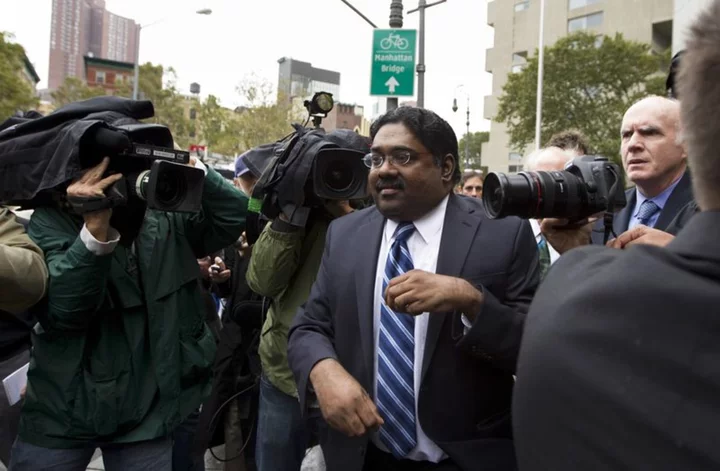By Timothy Aeppel
The U.S. must change how it measures the well-being of its people - including gauging how much of a voice they feel they have in political outcomes - as part of a larger effort to reverse rising inequality across the economy.
That's the assessment of a new report released on Thursday by the American Academy of Arts and Sciences. It includes recommendations ranging from redesigning social programs with an aim of providing greater stability to those facing economic hardships to extending to Black World War Two veterans and their descendants the benefits they were denied under the G.I. Bill decades ago.
There is growing concern about a contradiction in the U.S. economy: jobs are plentiful and economic growth is strong, especially compared with other advanced economies, but surveys show many Americans are sour about the outlook.
"We're close to full employment by traditional measures," said Matthew Slaughter, a member of the commission that wrote the report and the dean of Dartmouth College's Tuck School of Business. "But a lot of American families in surveys say they don't think it's going that well."
Recent data underscores the problem. A report on consumer finances from the Federal Reserve last month found that American families on average saw large gains in income and wealth from 2019 to 2022, but the income gains were largest among the highest-earning families, and fastest among white families. New estimates from the U.S. Census Bureau also show the share of income going to the top 5% grew from 2019 to 2022, extending a trend dating from the 1980s.
Dissatisfaction with the status quo shows up in how Americans vote, said Nicholas Lemann, a co-chair of the commission and a professor at the Columbia Journalism School, noting there's now a competition between the two major political parties to be the "party of the working class." This reflects a growing focus on inequality as wealthier Americans and certain regions of the country have appeared to snare the bulk of the benefits of strong economic growth in recent decades, he said.
"There's a view that the good stuff in America gets concentrated on the coasts," Lemann added.
MEASURING WELL-BEING
This is the first time the American Academy of Arts and Sciences, which was founded in 1780 to advance research and civil dialogue, has tackled a broad analysis of the U.S. economy.
Based in part on 31 "listening sessions" conducted with groups of working Americans, the commission developed a list of 15 recommendations on how to make the economy more equitable. Some are vague, such as "deconcentrating economic power," but others target specific steps, such as expanding access to low-cost banking and broadband connectivity in underserved communities.
A key part of the report is a new tool developed to measure the well-being of Americans, which combines 11 different measures. Among the categories are indicators of health, such as life expectancy and the percentage of people with health insurance, and economic security, including the percentage of households that spend less than 30% of total income on housing.
Researchers around the world have long sought to find better ways to gauge the well-being of people that look beyond measures such as economic growth or unemployment. One example is the Social Vulnerability Index, which uses Census data for every census tract to assess 14 social factors.
The American Academy of Arts and Sciences' measure shows some broad trends that are well-known, such as pockets of poverty in the U.S. South and affluent clusters along the coasts.
One unique part of the measure is an attempt to quantify the "political voice" of Americans. One component of this compares what people who responded to a government survey on what they would like to see happen on high-profile policy issues with how their representatives in Congress voted on those items when they arose during legislation. A high level of support for an issue and a "yes" vote by their representative yielded a high score.
"Even if the economy right now has low unemployment and relatively high growth, we know that people feel a huge amount of anxiety - and a lot of that is tied up with the sense that our society is changing, and our democracy isn't healthy," said Jacob Hacker, a political science professor at Yale University who spearheaded the development of the political voice score.
(This story has been corrected to remove the acronym for American Academy of Arts and Sciences in paragraphs 2, 9, and 13)
(Reporting by Timothy Aeppel; Editing by Paul Simao)









